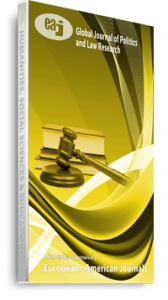Right to a healthy environment is an inalienable right of man because it is a fundamental human right. The environment is devastated by anthropogenic and natural factors to the extent that man no longer feels safe, as his health and general wellbeing are under unspeakable threats. His right to a clean environment is therefore implicit in right to life since a clean and hazards-free environment determines man’s existence to freely and with sound health harness the numerous natural resources he is endowed with, and also enjoy other rights. The right to life implying the right to live in a clean environment forms the basis of the existentiality of the entire man’s rights duly recognized and protected by law both at the international and domestic sphere, such as the African Charter on Human and Peoples’ Rights of 1981, the Rio Conference of 1992, and the Constitutions and Bill of Rights of States across the globe, including Nigeria, with provisions on the right to a clean and healthy environment as a right to life. The courts of various states have also provided legal redresses and remedies to victims of violation of environmental rights and severally interpreted the right to life to include the right to a clean environment and well being. Nigeria has a constitutional provision on the right to life under section 33 of the 1999 constitution of the Federal Republic of Nigeria, as part of the numerous fundamental rights provided for under chapter IV of the said constitution. There are still other provisions on environmental protection in Nigeria, particularly section 20 of the constitution. This work spotlights the rights to health and right to life in Nigeria, particularly as it relates to environmental protection in Nigeria, pointing out the deficiencies, weakness or otherwise, if any, in the provisions of the Nigeria Constitution and suggesting remedies and pathways. It also considers the constitutional provisions and judicial decisions of other jurisdictions within and outside Africa, on the right to a healthy environment and also gives a brief comparative analysis of the legal positions in Nigeria and that of other jurisdictions, ostensibly to ascertain whether or not the Nigerian legal pendulum is tilted towards international best standards and practices.
Keywords: Environmental Protection, healthy environment, human right and environment., right to health, right to life

